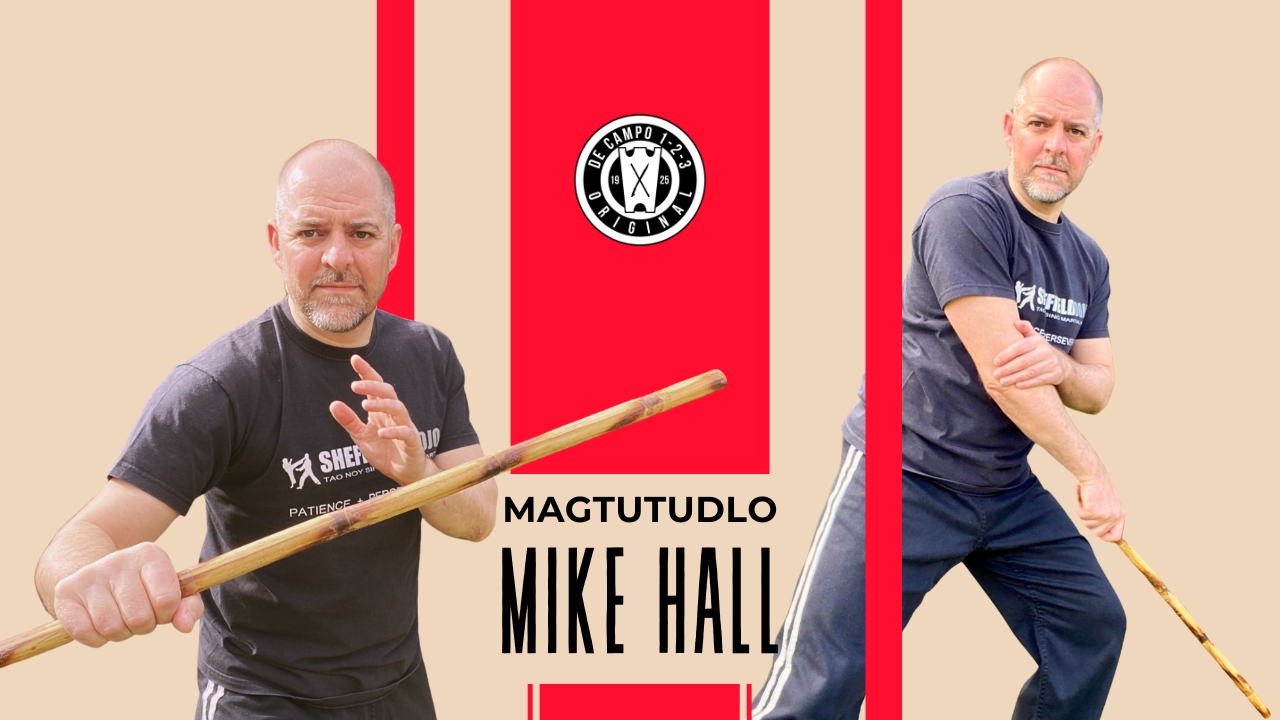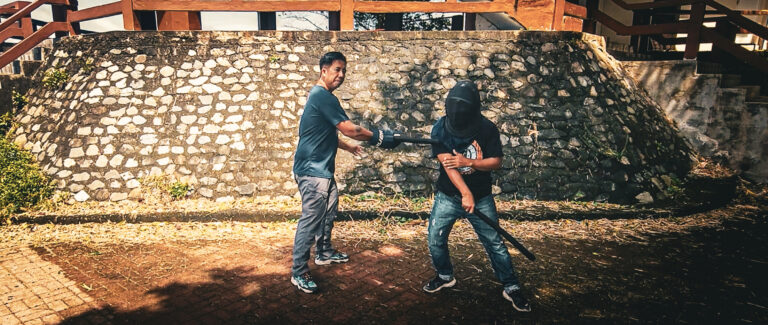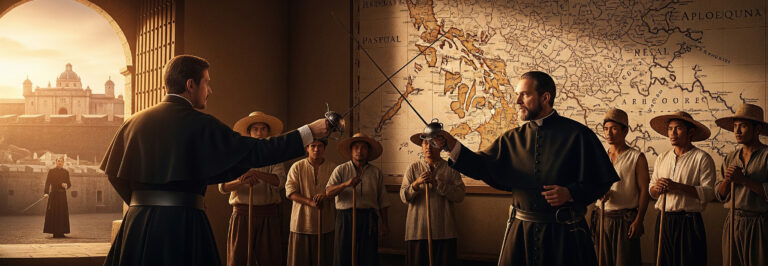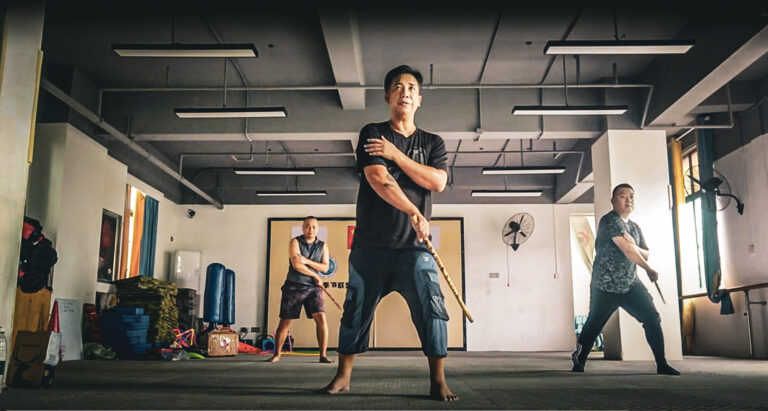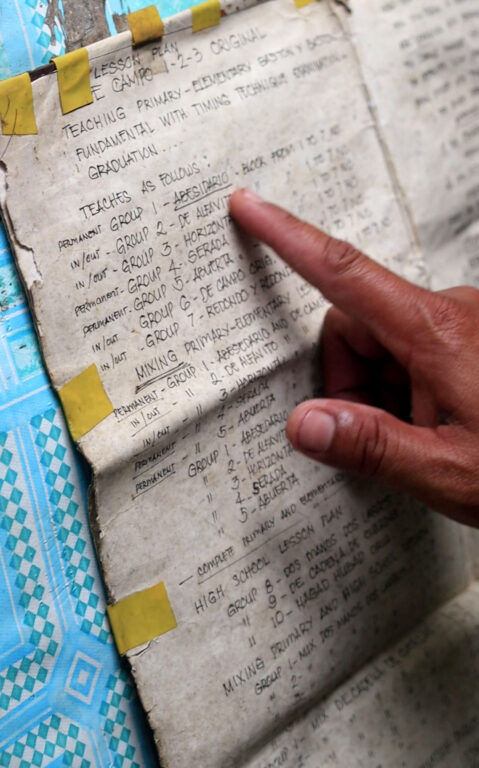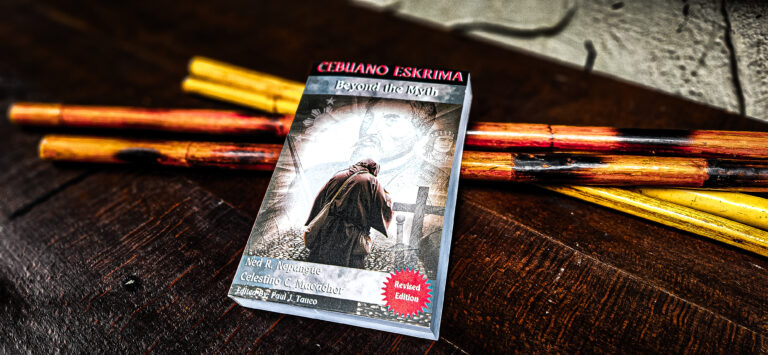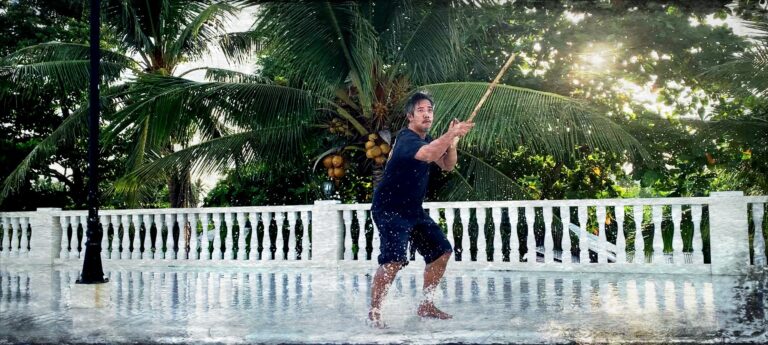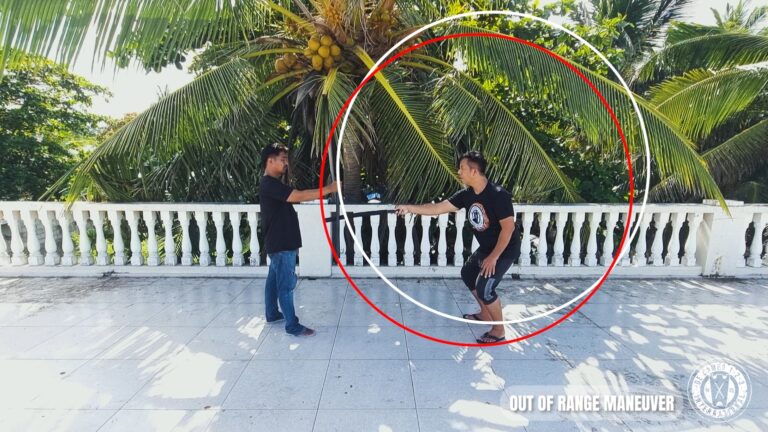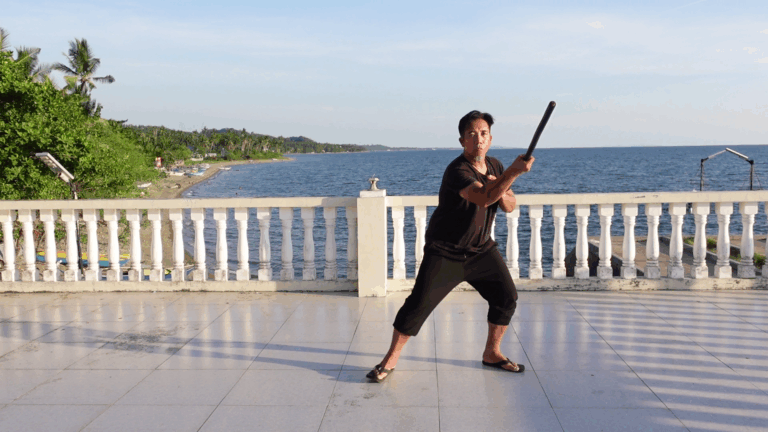Michael Hall: Bringing De Campo 1-2-3 Original to Sheffield, UK
Early Martial Arts Journey
Michael Hall’s involvement in martial arts began when he was still very young. From the start, he showed a natural interest in movement, discipline, and the challenge of training. Over the years, he worked hard to develop his abilities, practicing consistently and striving to improve his skills step by step.
What set Mike apart was his openness to explore beyond the style he first trained in. His Karate background gave him structure and discipline, but he was always curious about how different martial traditions approached combat. This curiosity led him to the Filipino Martial Arts, and eventually to De Campo 1-2-3 Original, a system known for its precision, efficiency, and direct application in combat.
Discovering De Campo 1-2-3 Original
In May 2021, Mike took a new step in his training when he began studying De Campo 1-2-3 Original under Sir Aaron Davis of MKG Southampton – Martial Arts. Through this introduction, he saw how different De Campo was compared to what he had practiced before. The economy of movement, the focus on distance and timing, and the unique strategies of the system immediately caught his attention.
Wanting to go deeper, Mike signed up for the official De Campo online course. What started as an exploration quickly turned into a serious commitment. He later sought private Zoom instruction with Maestro Paolo Pagaling to refine his practice. These one-on-one sessions allowed him to address specific weaknesses, ask detailed questions, and build a stronger understanding of the art.
Mike’s training also reflected the growing global reach of De Campo. What was once a secretive family system is now being preserved and shared worldwide. As highlighted in this article on De Campo going global, the art has found students across continents, with Mike being one of the committed practitioners representing the UK.
Transitioning from Karate to De Campo
Despite his martial arts experience, the shift from Karate to De Campo was not easy. The stances, strikes, and flow of Filipino Martial Arts often move in ways that can feel unfamiliar to those trained in more linear systems. At first, Mike struggled with breaking old habits that no longer served him in this new context.
What made the difference was his attitude. Instead of resisting correction, Mike embraced it. He welcomed feedback from Maestro Paolo and saw every adjustment as a step forward. Over time, this mindset helped him smooth out difficulties and develop movements that were more in line with the De Campo methodology. The patience he showed in this stage of his training became one of his greatest strengths.
His experience also speaks to one of the key lessons of martial arts: growth requires humility. Accepting that something feels awkward at first is part of the process. For Mike, it was the bridge that connected his Karate foundation to the efficiency and sharpness of De Campo.
Preparing for the Instructor Exam
After nearly two years of consistent training, Mike set his sights on the De Campo Instructor Exam. Preparation was not simply about repeating drills; it required a full understanding of the system’s principles. He worked on polishing details like footwork, baiting strategies, and striking mechanics.
A key element of his training was refining the famous snap-back strike, a defining feature of the art. This technique is explained in depth in The De Campo Half Strike: Details on the Snap-Back Motion. Mastering this concept, along with timing and distance control, gave Mike the confidence he needed heading into his exam.
His journey also connects with the broader mission of preserving and documenting Filipino Martial Arts. As noted in this academic paper on De Campo 123 preservation, every practitioner plays a role in keeping the art alive and relevant. Mike’s dedication to preparing for the exam is part of that ongoing story.
Instructor Exam and Certification
On April 2, 2023, Mike finally put his training to the test in the De Campo Instructor Exam. The exam was conducted online via Zoom and followed a strict format to ensure quality. He performed before a panel of senior instructors, including Maestro Paolo Pagaling and Master Jomalin Caballero, the heir to the system. Other De Campo practitioners also attended, both to observe and to learn from the process.
The panel tested Mike’s technical ability, tactical understanding, and overall grasp of the art. They also gave constructive feedback, continuing the cycle of learning even within the exam itself. After demonstrating his skills and answering questions, Mike passed successfully. He earned the title of Magtutudlo (Instructor), a recognition of his effort, discipline, and perseverance.
Now Teaching in Sheffield, UK
With his certification complete, Mike is now based in Sheffield, UK, where he is ready to share De Campo 1-2-3 Original with students in his community. His journey shows that with dedication and the right guidance, even those starting outside of the Filipino martial traditions can achieve deep understanding and contribute to passing the art forward.
By combining his Karate background with the precision of De Campo, Mike brings a unique perspective to his teaching. He understands both the struggles of transitioning and the rewards of persistence, which makes him especially supportive of new students. For those in Sheffield, training with Mike offers a direct path into one of the most practical and historically rich Filipino Martial Arts systems.
Conclusion
Michael Hall’s story is one of curiosity, patience, and determination. From his early beginnings in martial arts, to his focused training under Maestro Paolo, and finally to earning his Instructor rank, every stage reflects the values of discipline and respect that define De Campo 1-2-3 Original.
Today, as he begins teaching in Sheffield, Mike stands as both a practitioner and a guardian of the system. His achievement is not just personal—it adds to the growing global presence of De Campo. For anyone seeking a martial art that values efficiency, history, and practical skill, learning from instructors like Mike ensures that the legacy of De Campo continues to thrive.
